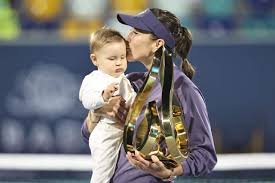For decades, female athletes faced an impossible choice: continue their sports careers or start a family.
Now, the WTA’s new maternity policy aims to change that.
Under the new program:
- Financial grants will be available for players who wish to undergo egg freezing or in vitro fertilization (IVF)
- Players taking maternity leave will retain their protected rankings for a longer period
- Returning mothers will receive enhanced support for scheduling, healthcare, and fitness training
The move reflects a deep understanding of the physical, emotional, and career challenges faced by women athletes.
Why the Change Matters
For professional athletes, peak performance years often overlap with prime childbearing years.
This biological reality has long placed female tennis players in a difficult position.
Key challenges included:
- Risking a drop in rankings due to maternity breaks
- Financial burdens of fertility treatments
- Uncertainty about returning to top-level competition after childbirth
The WTA’s new policy addresses these concerns head-on, recognizing that motherhood should not end an athlete’s career.
Details of the New WTA Maternity Support Program
The WTA’s updated maternity policy includes:
- Grants for egg freezing: Covering medical costs for freezing eggs at a younger age, giving athletes more reproductive choices later
- Support for IVF treatments: Offering partial financial assistance to players seeking assisted reproductive technologies
- Extended protected ranking: Allowing mothers to use their pre-pregnancy rankings to enter tournaments for a longer period post-return
- Customized fitness programs: Providing tailored recovery and conditioning plans after childbirth
- Mental health support: Offering counseling services for balancing professional sports and parenting
These initiatives create a supportive framework for players to plan both their athletic and family futures.
A Broader Impact Beyond Tennis
The WTA’s decision could influence other sports organizations around the world.
By recognizing motherhood as a natural and respected part of an athlete’s life, it sends a powerful message:
- Women athletes deserve the same opportunities as men to build families without sacrificing their careers.
- Sports bodies must invest in policies that reflect real-life challenges, not penalize women for biology.
- Supporting women in sports strengthens the entire ecosystem — from players to fans to future generations.
Many hope that federations in football, athletics, and other sports will soon follow WTA’s lead.


